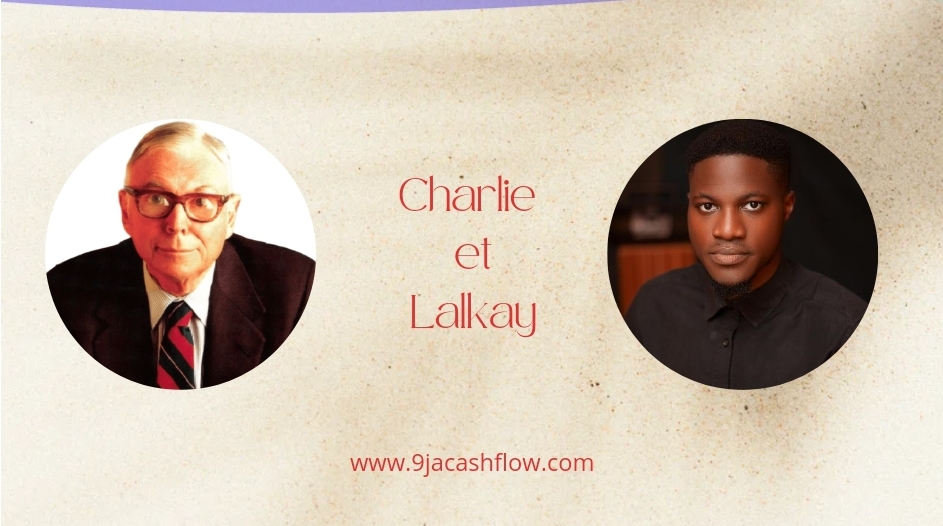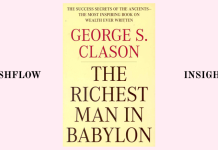This is an except from the insights of one of the most sound investors of our time, in person of Charles T Munger.
He is a partner to Warren Buffet(CEO of Berkshire Hathaway) , and the duo formed a formidable force to reckon with in the modern investment world.
He recommends you stop looking for a one size fit all formula for investing but instead look at it from a multidisciplinary perspective using your own investing checklist.
Below is his suggestion and investment principle checklist: in his on words.
“No wise pilot, no matter how great his talent and experience, fails to use his checklist.”
We have now examined Charlie’s approach to thinking in general and to investing in particular. In keeping with our intent to observe “how he seems to do it,” we will recap his approach by using the “checklist” methodology he advocates.
- Risk – All investment evaluations should begin by measuring risk, especially reputational
- Incorporate an appropriate margin of safety
- Avoid dealing with people of questionable character
- Insist upon proper compensation for risk assumed
- Always beware of inflation and interest rate exposures
- Avoid big mistakes; shun permanent capital loss
- Independence -“Only in fairy tales are emperors told they are naked”
- Objectivity and rationality require independence of thought
- Remember that just because other people agree or disagree with you doesn’t make you right or wrong – the only thing that matters is the correctness of your analysis and judgment
- Mimicking the herd invites regression to the mean (merely average performance)
- Preparation -‘(the only way to win is to work, work, work, work, and hope to have a few insights.”
- Develop into a lifelong self-learner through voracious reading; cultivate curiosity and strive to become a little wiser every day
- More important than the will to win is the will to prepare
- Develop fluency in mental models from the major academic disciplines
- If you want to get smart, the question you have to keep asking is “why, why, why?”
- Intellectual humility – Acknowledging what you don’t know is the dawning of wisdom
- Stay within a well-defined circle of competence
- Identify and reconcile disconfirming evidence
- Resist the craving for false precision, false certainties, etc’
- Above all, never fool yourself, and remember that you are the easiest person to fool
- Analytic rigor – use of the scientific method and effective checklists minimizes errors and omissions
- Determine value apart from price; progress apart from activity; wealth apart from size
- It is better to remember the obvious than to grasp the esoteric
- Be a business analyst, not a market, macroeconomic, or security analyst
- Consider totality of risk and effect; look always at potential second order and higher-level impacts
- Think forwards and backwards-Invert, always invert
- Allocation – Proper allocation of capital is an investor’s number one job
- Remember that highest and best use is always measured by the next best use (opportunity cost)
- Good ideas are rare – when the odds are greatly in your favor, bet (allocate) heavily
- Don’t “fall in love” with an investment-be situation-dependent and opportunity-driven
- Patience – Resist the natural human bias to act
- “Compound interest is the eighth wonder of the world” (Einstein); never interrupt it unnecessarily
- Avoid unnecessary transactional taxes and frictional costs; never take action for its own sake
- Be alert for the arrival of luck
- Enjoy the process along with the proceeds, because the process is where you live
- Decisiveness – When proper circumstances present themselves, act with decisiveness and conviction
- Be fearful when others are greedy, and greedy when others are fearful
- Opportunity doesn’t come often, so seize it when it does
- Opportunity meeting the prepared mind: that’s the game
- Change – Live with change and accept unremovable complexity
- Recognize and adapt to the true nature of the world around you; don’t expect it to adapt to you
- Continually challenge and willingly amend your “best-loved ideas”
- Recognize reality even when you don’t like it – especially when you don’t like it
- Focus – Keep things simple and remember what you set out to do
- Remember that reputation and integrity are your most valuable assets – and can be lost in a heartbeat
- Guard against the effects of hubris and boredom
- Don’t overlook the obvious by drowning in minutiae
- Be careful to exclude unneeded information or slop: “A small leak can sink a great ship”
- Face your big troubles; don’t sweep them under the rug
Other Principles
Compound Interest
“…It’s the stone that will turn all your lead into gold. … Remember that money is of a prolific generating nature. Money can beget money, and its offspring can beget more.” -Benjamin Franklin
“If you took our top fifteen decisions out, we’d have a pretty average record. It wasn’t hyperactivity but a hell of a lot of patience. You stuck to your principles and when opportunities came along, you pounced on them with vigor.”
“There are worse situations than drowning in cash and sitting, sitting, sitting. I remember when I wasn’t awash in cash-and I don’t want to go back.” – Munger
Invert. Always Invert.
Know What to Avoid. “The ‘Munger System of Avoiding Dumb Stuff’ will alone, strictly adhered to, allow you to prevail over your ‘betters,’ no matter how smart they are,”
Understanding both the power of compound interest and the difficulty of getting it is the heart and soul of understanding a lot of things.
Mispriced Bets
“It’s not given to human beings to have such talent that they can just know everything about everything all the time. But it is given to human beings who work hard at it – who look and sift the world for a mispriced bet – that they can occasionally find one.”
Thomas Carlyle (1795-1881)
“The task of a man is not to see what lies dimly in the distance, but to do what lies clearly at hand.”
Charlie Sums It Up
“How do some people get wiser than other people? Partly it is an inborn temperament. Some people do not have a good temperament for investing. They’re too fretful; they worry too much. But if you’ve got a good temperament’ which basically means being very patient, yet combine that with a vast aggression when you know enough to do something, then you just gradually learn the game, partly by doing’ partly by studying. Obviously, the more hard lessons you can learn vicariously, instead of from your own terrible experiences, the better off you will be. I don’t know anyone who did it with great rapidity. ‘Warren Buffett has become one hell of a lot better investor since the day I met him, and so have I. If we had been frozen at any given stage, with
the knowledge hand we had, the record would have been much worse than it is. So the game is to keep learning, and I don’t think people are going to keep learning who don’t like the learning process.”
Since human beings began investing, they have been searching for a magic formula or easy recipe for instant wealth. As you can see, Charlie’s superior performance doesn’t come from a magic formula or some business-school-inspired system. It comes from what he calls his “constant search for better methods of thought,” a willingness to “prepay” through rigorous preparation, and from the extraordinary outcomes of his multidisciplinary research model. In the end, it comes down to Charlie’s most basic guiding principles, his fundamental philosophy of life: Preparation. Discipline. Patience. Decisiveness. Each attribute is in turn lost without the other, but together they form the dynamic critical mass for a cascading of positive effects for which Munger is famous (the “lollapalooza”).
Credit: The Poor Charlie’s Almanack: The Wit and Wisdom of Charles T. Munger
Kindly get your own copy of the book on Amazon.
Discover more from 9jacashflow.com
Subscribe to get the latest posts sent to your email.





